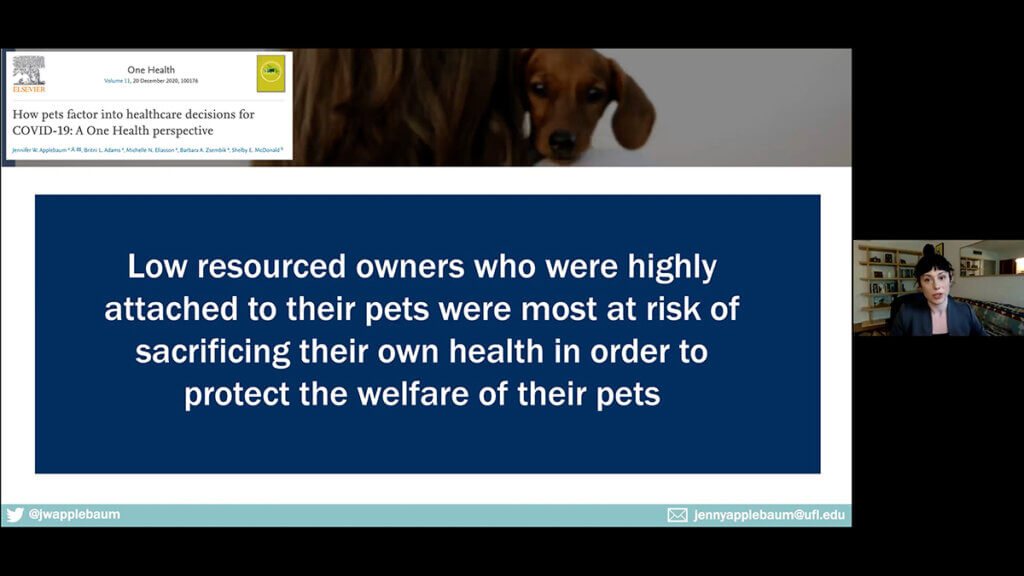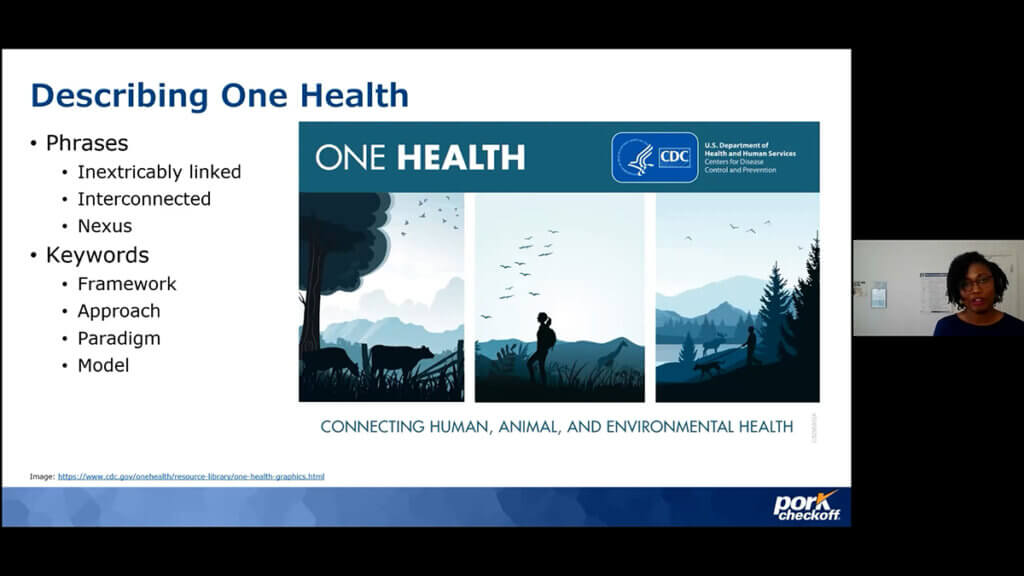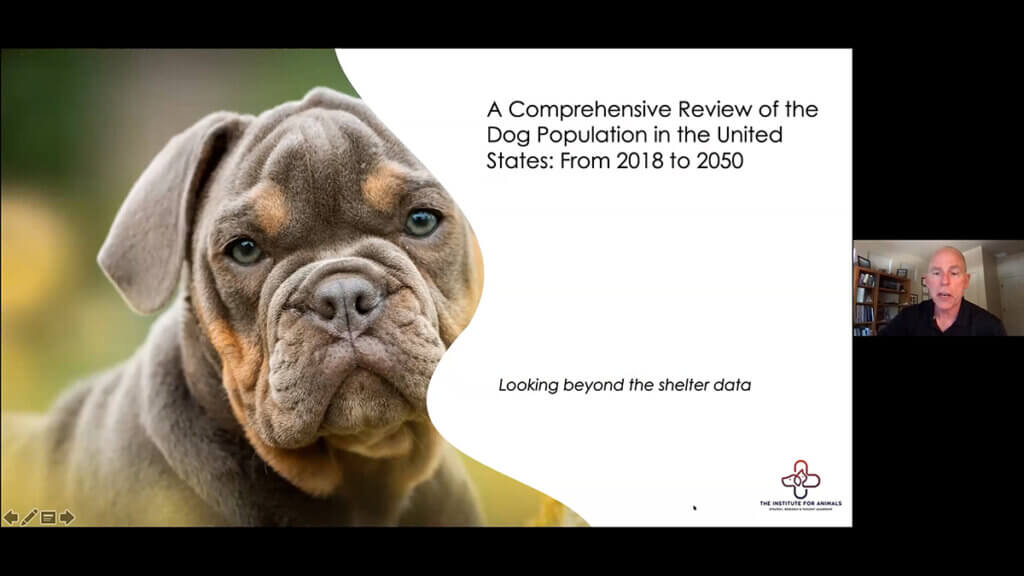

In keeping with Protect Purdue requirements, the 2021 Center for Animal Welfare Science (CAWS) Symposium was held virtually May 19-20 and proved to be a hit, with 153 registrants participating from 30 states and nine countries. The two-day program focused on understanding how the COVID-19 pandemic has influenced perceptions about the human-animal bond.
In describing the importance of the symposium, Dr. Candace Croney, the director of the Center for Animal Welfare Science, explained, “The issue of how to address the welfare of animals while also taking care of the diverse range of people and environmental impacts that interact with and are dependent on them is significant and requires collaborative, multi-disciplinary problem-solving.” She added that CAWS was excited to host students and others new to animal welfare science and welcome back those well established in the discipline to connect with the topics and speakers.

Throughout the symposium, participants were able to engage with nine highly respected speakers from a variety of disciplines since time was provided at the end of each lecture to ask questions and dig deeper into the issues presented. Lecture topics evoked new ways of looking at how human health and animal health are intertwined and how they impact each other. Dr. Croney ended each day with closing remarks during which she highlighted key takeaways from each of the sessions.
CAWS extends special thanks to Cargill for sponsoring the symposium and to the Colleges of Veterinary Medicine and Agriculture for their support, as well as to all of the symposium speakers, some of whom kindly donated their honoraria back to the program to help advance the Center’s goal of greater inclusion and access to animal welfare science. On-demand videos of each of the presentations are available until June 7 to registered attendees who, because of the time difference or other obstacles, were not able to view the symposium in the live virtual format.
